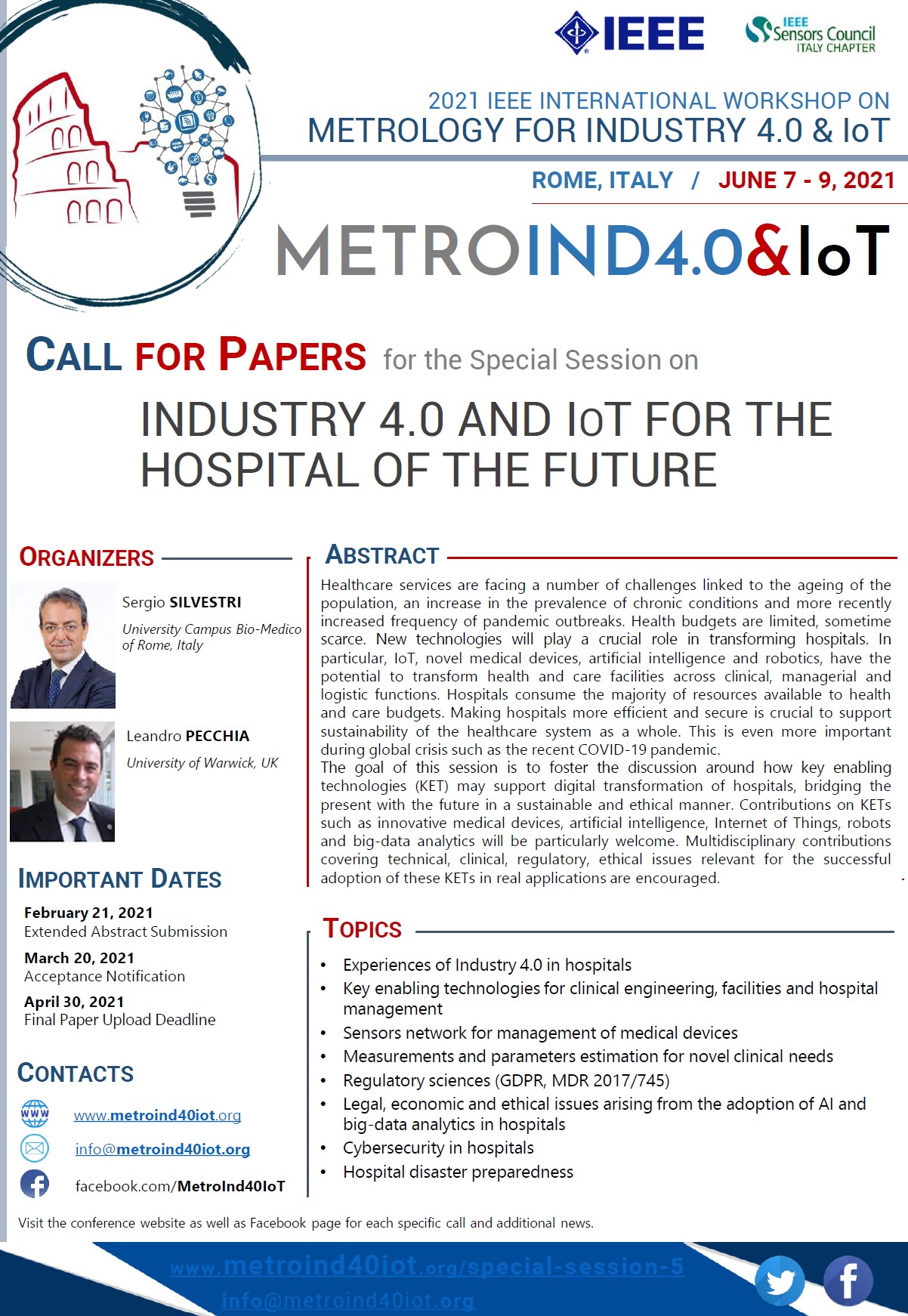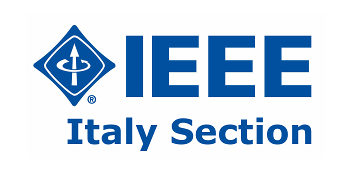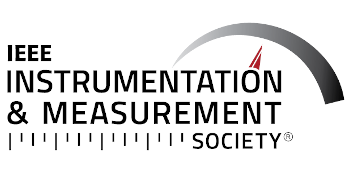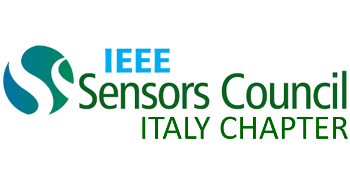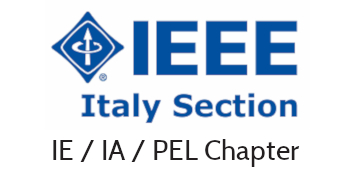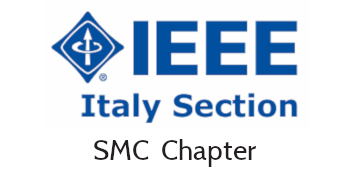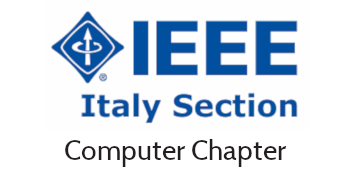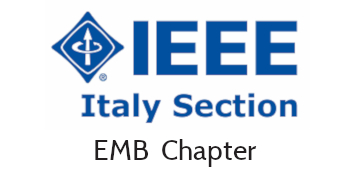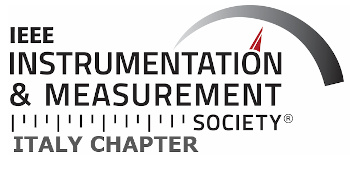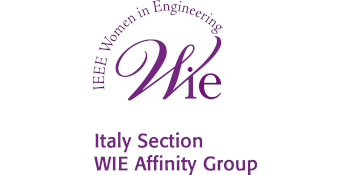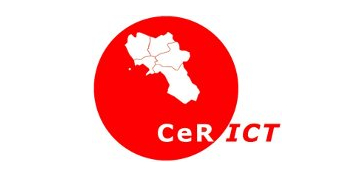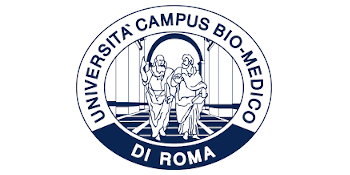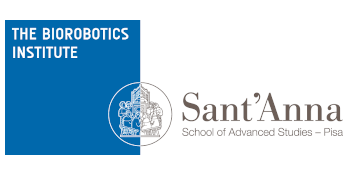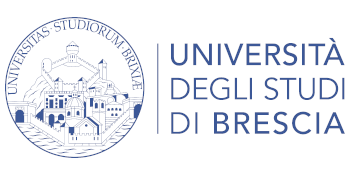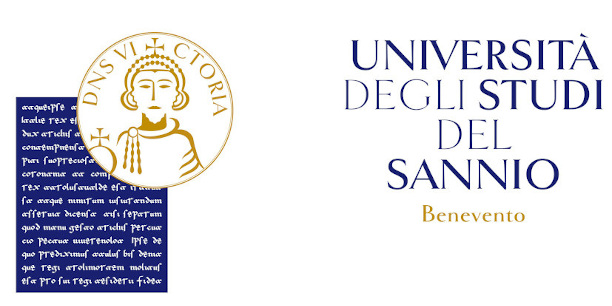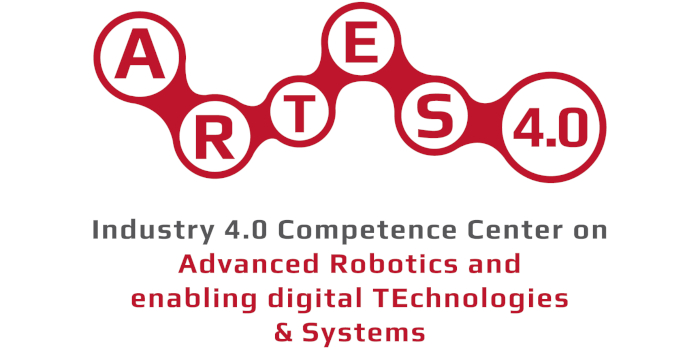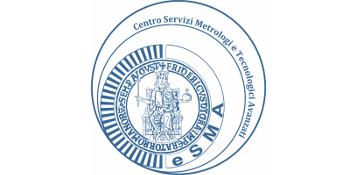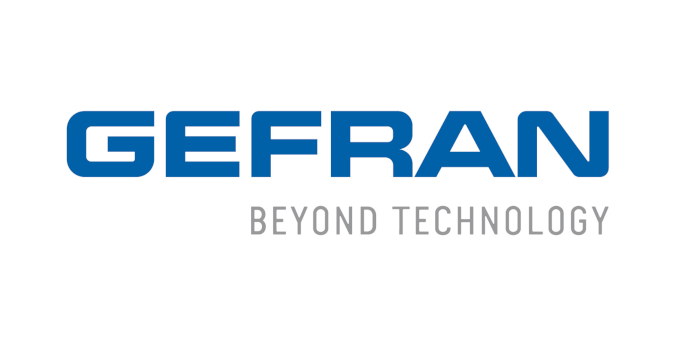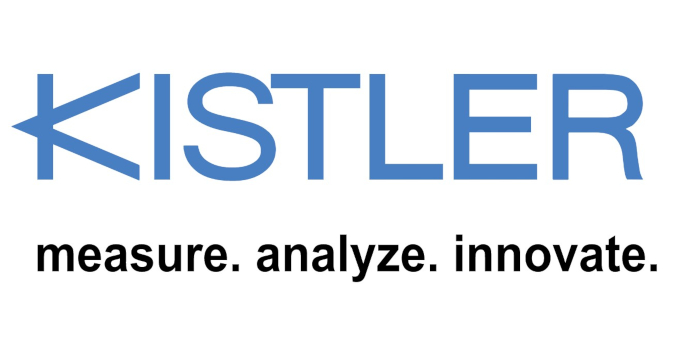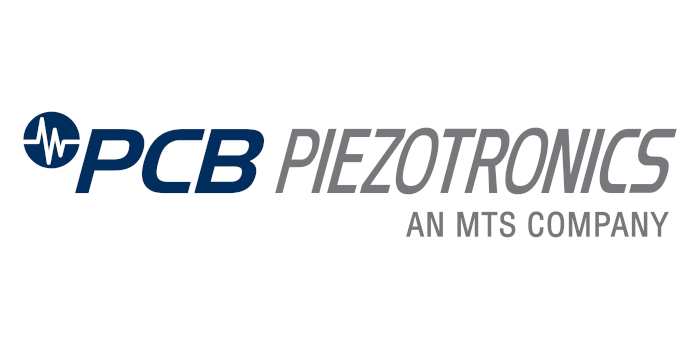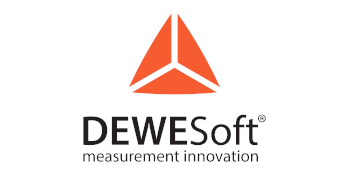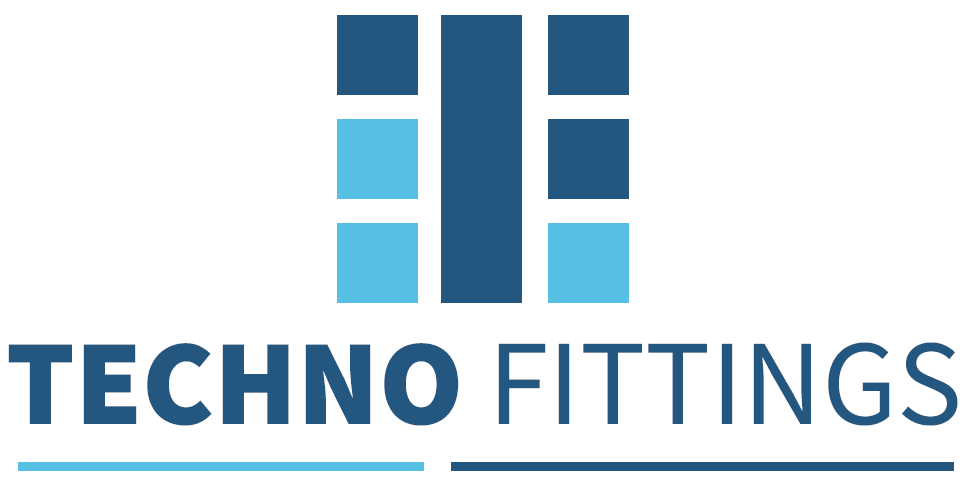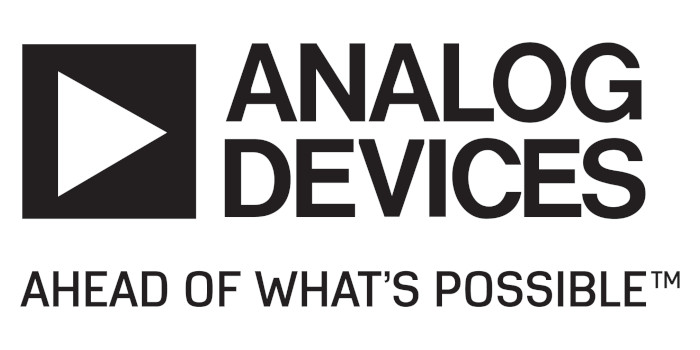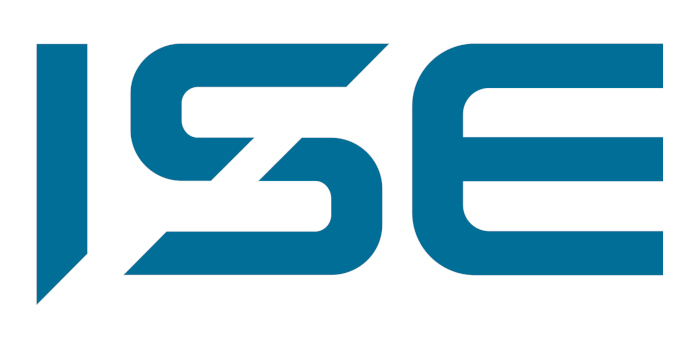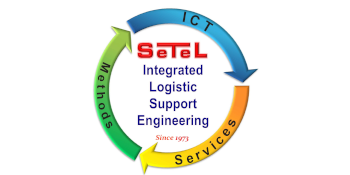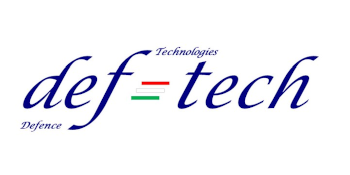Industry 4.0 and IoT for the hospital of the future
ORGANIZED BY
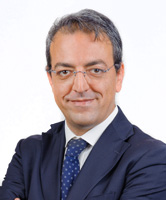
Sergio Silvestri
University Campus Bio-Medico of Rome, Italy
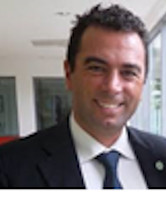
Leandro Pecchia
University of Warwick, UK
ABSTRACT
Healthcare services are facing a number of challenges linked to the ageing of the population, an increase in the prevalence of chronic conditions and more recently increased frequency of pandemic outbreaks. Health budgets are limited, sometime scarce. New technologies will play a crucial role in transforming hospitals. In particular, IoT, novel medical devices, artificial intelligence and robotics, have the potential to transform health and care facilities across clinical, managerial and logistic functions. Hospitals consume the majority of resources available to health and care budgets. Making hospitals more efficient and secure is crucial to support sustainability of the healthcare system as a whole. This is even more important during global crisis such as the recent COVID-19 pandemic.
The goal of this session is to foster the discussion around how key enabling technologies (KET) may support digital transformation of hospitals, bridging the present with the future in a sustainable and ethical manner. Contributions on KETs such as innovative medical devices, artificial intelligence, Internet of Things, robots and big-data analytics will be particularly welcome. Multidisciplinary contributions covering technical, clinical, regulatory, ethical issues relevant for the successful adoption of these KETs in real applications are encouraged.
TOPICS
- Experiences of Industry 4.0 in hospitals
- Key enabling technologies for clinical engineering, facilities and hospital management
- Sensors network for management of medical devices
- Measurements and parameters estimation for novel clinical needs
- Regulatory sciences (GDPR, MDR 2017/745)
- Legal, economic and ethical issues arising from the adoption of AI and big-data analytics in hospitals
- Cybersecurity in hospitals
- Hospital disaster preparedness
ABOUT THE ORGANIZERS
Prof Sergio Silvestri graduated in Mechanical Engineering at the University of Rome La Sapienza and received the PhD in Mechanical and Thermal Measurements in 2001 from the University of Cagliari. Since 2002, he joined University Campus Bio-Medico of Rome where he is Full Professor of Measurements and Biomedical Instrumentation. Since 2005 is Head of the Clinical Engineering Service of the University Hospital Campus Bio-Medico of Rome, with more than 7,000 biomedical devices, as far as it concerns the acquisition of new equipment, the quality control and maintenance management. He authored more than 120 peer-reviewed papers on journals and peer reviewed conferences in the fields of Intensive Care Unit Equipment, Biomedical Imaging and novel measurement system for clinical applications. He is technical consultant of several Manufacturers of Medical Instrumentation and Diagnostic Imaging Equipment.
Prof Leandro Pecchia graduated in Biomedical Engineering in 2005 and received the PhD in Biomedical Engineering and Management of Healthcare Services in 2009 from the University “Federico II” of Naples. Since 2013, he joined The University of Warwick, UK, where he is Associate Professor of Biomedical Engineering. Since 2014, he directs the Applied Biomedical Signal Processing and Intelligent eHealth Lab (ABSPIE). Dr Pecchia authored more than 100 peer-reviewed papers on journals, books and conferences in the fields of Health Technology Assessment (HTA), Internet of Things and machine learning applied to active and healthy ageing and management of chronic diseases. Dr Pecchia is President Elect of the EAMBES, Secretary General of the IUPESM, Treasurer of the IFMBE Clinical Engineering Division, and former IFMBE Healthcare Technology Assessment Division Chair (2015-18) and Treasurer (2012-15). In these roles, he has served the World Health Organization and the European Parliament supporting as expert of medical devices.
Link: warwick.ac.uk/fac/sci/eng/people/leandro_pecchia

